Education Poverty

How do low-income countries tackle poverty and improve the living standards of their population ?
Tackling poverty in low-income countries requires a multifaceted approach that addresses various aspects of development. Some key strategies include investing in education, promoting economic growth through foreign investment and local industry development, addressing healthcare needs by providing access to primary care services and training healthcare workers, and empowering women and girls through education, gender equality initiatives, and support for women-led businesses. By adopting these approaches, low-income countries can work towards improving the living standards of their populations and breaking the cycle of poverty.
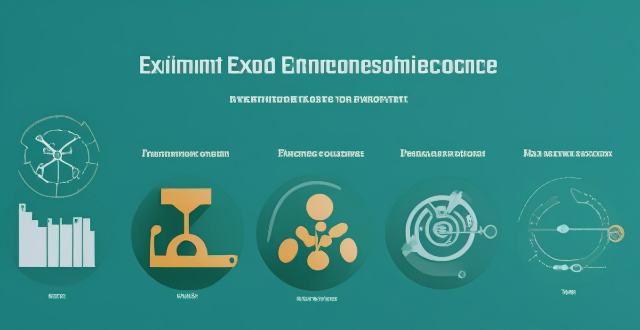
What is the relationship between climate change and poverty ?
This article examines the complex relationship between climate change and poverty, explaining how each exacerbates the other. It outlines the impact of climate change on poverty through increased natural disasters, loss of livelihoods, and health risks. Conversely, it also explores how poverty contributes to climate change through deforestation, energy poverty, and lack of resources for climate action. The article concludes by emphasizing the need for urgent attention from policymakers and individuals to address both issues simultaneously, aiming for a more equitable and sustainable future.
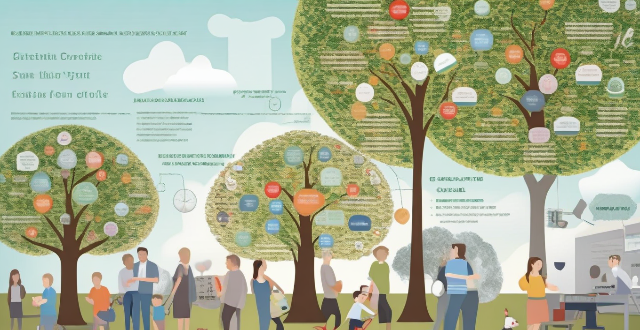
What role do international organizations play in addressing climate change and poverty ?
International organizations play a critical role in addressing pressing global issues like climate change and poverty. They bring together various stakeholders to develop strategies, set goals, provide financial assistance, and foster cooperation. These efforts aim to mitigate the effects of climate change, reduce poverty levels, and promote sustainable development worldwide.
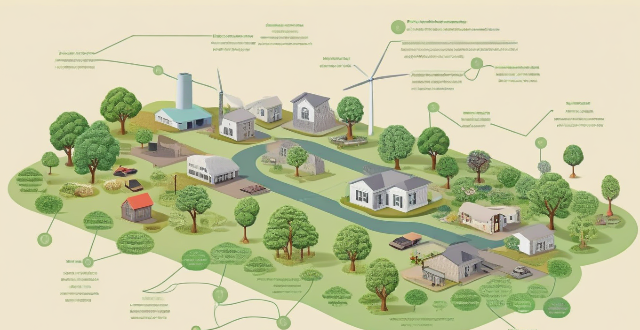
How can we address both climate change and poverty at the same time ?
Addressing climate change and poverty simultaneously requires a multifaceted approach that includes investing in renewable energy, promoting sustainable agriculture, implementing climate-resilient infrastructure, education and awareness, international cooperation, green economy initiatives, adapting to climate change, and social protection systems. By intertwining efforts to mitigate climate change with initiatives aimed at poverty alleviation, we can build a future that is both equitable and sustainable.

Can the promotion of sports activities help in reducing urban poverty ?
Promoting sports activities can contribute to reducing urban poverty by improving health, providing educational opportunities, promoting social cohesion, and creating economic opportunities. However, it is important to recognize that sports activities alone cannot solve all aspects of urban poverty and should be part of a broader strategy to address this complex issue.
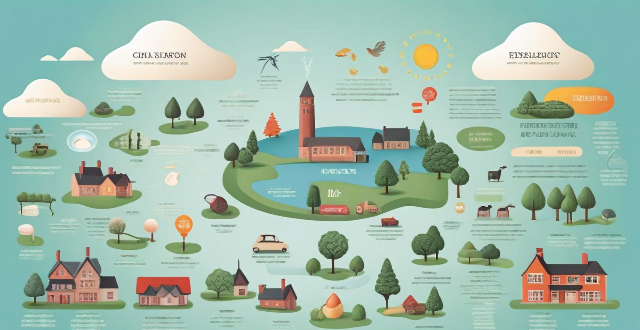
How does climate change affect poverty levels ?
The article discusses the various ways in which climate change affects poverty levels around the world. It highlights the direct effects of extreme weather events and health impacts, as well as the indirect effects on food security, livelihoods, and gender inequality. The article also suggests strategies for mitigating the impact of climate change on poverty, including investing in renewable energy sources, supporting smallholder farmers, enhancing resilience through improved infrastructure, promoting gender equality, and providing social protection programs.

How can we promote sustainable development while also tackling climate change and poverty ?
The text discusses a multi-faceted approach to promote sustainable development, tackle climate change and poverty. It suggests strategies such as renewable energy adoption, green economy and job creation, circular economy and resource efficiency, sustainable agriculture and food systems, conservation and protection of natural resources, and inclusive governance and partnerships. By implementing these strategies, we can work towards creating a more equitable and sustainable future for all.

What are some examples of how climate change has exacerbated poverty in certain regions ?
Climate change significantly exacerbates poverty in various regions worldwide. It affects livelihoods, food security, health, displacement, and economic stability, disproportionately impacting impoverished communities. Addressing climate change is crucial for alleviating poverty.

What is the impact of climate change on poverty and inequality, as addressed by the SDGs ?
Climate change exacerbates poverty and inequality by affecting livelihoods, food security, and displacement. Wealthier individuals and countries are better equipped to cope with climate change, leading to wider economic disparities. The Sustainable Development Goals aim to address these issues through goals related to poverty, hunger, inequality, and climate action.

What are the current global challenges in achieving gender equality in education ?
Gender equality in education is a fundamental human right and key to economic growth, social development, and poverty reduction. However, several challenges hinder its achievement globally. One major challenge is the lack of access to education for girls due to poverty, cultural beliefs, and traditional roles assigned by society. Another challenge is gender bias in curriculum and teaching methods that lead to a lack of representation and role models for girls while perpetuating harmful stereotypes about gender roles. Sexual harassment and violence against girls in schools also hinder gender equality in education by creating an unsafe learning environment that can lead to low self-esteem, anxiety, depression, and dropping out of school altogether. Insufficient funding for girls' education prevents schools from providing proper facilities, materials, or trained teachers needed to support girls' learning. Addressing these challenges requires policy changes, increased funding, improved curriculum design, teacher training programs, and awareness campaigns targeting both parents and communities.

In what ways does education empower women socially and politically ?
Education is crucial for women's empowerment, enabling them to challenge societal norms and contribute more fully to society. It fosters increased awareness, improved socioeconomic status, and enhanced social relationships. Education also leads to greater political participation, policy influence, and promotion of gender equality. Overall, education enriches society by improving the lives of women and contributing to a more equitable world.

Why does poverty not only affect your wallet, but also hurt your brain? What is the scientific basis for this?

What role do education and literacy play in advancing women's rights ?
Education and literacy are fundamental rights that play a crucial role in advancing women's rights. They empower women, enhance their decision-making abilities, and enable them to participate fully in society. Education and literacy provide women with the knowledge and skills necessary to make informed decisions about their lives. Educated women are more likely to delay marriage and childbearing, have fewer children, and make better health choices for themselves and their families. Education and literacy increase women's economic opportunities by enabling them to access better jobs and higher incomes. Educated women are more likely to be employed in professional or skilled positions, which leads to greater financial independence and bargaining power within households. Educated women are more aware of their health rights and are better equipped to make decisions related to their own health and well-being. They have improved access to healthcare services, understand the importance of preventive care, and are less likely to suffer from diseases associated with poverty and lack of education. Education and literacy enhance women's political engagement by providing them with the necessary knowledge and skills to participate actively in the political process. Educated women are more likely to vote, run for office, and hold leadership positions. Their increased political participation leads to policies that promote gender equality and address issues affecting women and girls. Education and literacy help to break down gender stereotypes and promote social equality between men and women. When women are educated, they are more likely to challenge discriminatory practices and traditions that limit their rights. Educated women are also more likely to advocate for gender equality in their communities, leading to a more equitable society for all.

How do women-specific NGOs measure their impact on reducing poverty and inequality ?
This article explores how women-specific NGOs measure their impact on reducing poverty and inequality by focusing on key metrics such as economic empowerment, education and skill development, health and well-being, and gender equality and empowerment. It also highlights successful NGOs like Women's World Banking, Room to Read, and International Planned Parenthood Federation (IPPF) that use data collection tools to track progress towards their goals.

What impact does ESG have on sustainable development goals (SDGs) ?
ESG (Environmental, Social, and Governance) is a set of criteria used by investors to screen potential investments based on their environmental, social, and governance performance. The United Nations' Sustainable Development Goals (SDGs) are a universal call to action to end poverty, protect the planet, and ensure that all people enjoy peace and prosperity. This article explores how ESG can impact achieving the SDGs in terms of reducing carbon emissions, protecting natural resources, reducing poverty, promoting gender equality, improving transparency and accountability, and ensuring access to justice. Incorporating ESG criteria into investment decisions can support projects that contribute to sustainable development and help achieve the SDGs.

How do women's health and education projects address global disparities ?
Women's health and education are crucial for global development, affecting communities' well-being. Women's health projects ensure access to quality healthcare services, including prenatal care and family planning. Education initiatives promote gender equality by increasing girls' enrollment rates and eliminating classroom biases. Economic empowerment projects provide job training and microfinance loans to women entrepreneurs. These efforts create a more equitable world where everyone can thrive.

What are the 17 Sustainable Development Goals (SDGs) and what do they aim to achieve ?
The text describes the 17 Sustainable Development Goals (SDGs) and their objectives. The goals are: No Poverty, Zero Hunger, Good Health and Well-being, Quality Education, Gender Equality, Clean Water and Sanitation, Affordable and Clean Energy, Decent Work and Economic Growth, Industry, Innovation, and Infrastructure, Reduced Inequalities, Sustainable Cities and Communities, Responsible Consumption and Production, Climate Action, Life Below Water, Life on Land, Peace, Justice, and Strong Institutions, and Partnerships for the Goals. Each goal has specific objectives that aim to end poverty, protect the planet, and ensure all people enjoy peace and prosperity by 2030.

How do immigration policies impact the education system ?
Immigration policies have a significant impact on the education system, affecting student diversity, resource allocation, and quality of education. Increased student diversity can be beneficial but also presents challenges for educators. Changes in resource allocation may strain budgets and impact access to educational resources for immigrant families. Challenges related to the quality of education include meeting the needs of students with varying levels of academic preparedness and addressing discrimination or bias in the education system. It is important for educators and policymakers to consider these factors when developing policies and practices related to immigration and education.

What are the implications of climate change on the education and well-being of children worldwide ?
Climate change has significant impacts on the education and well-being of children worldwide. These impacts include disruption of education due to school closures and migration, health issues related to increased heatwaves and air quality problems, nutritional deficiencies from crop failures and food insecurity, psychological stress from natural disasters and anxiety about the future, loss of playgrounds and outdoor learning spaces, and socioeconomic impacts such as economic hardship and inequality in educational opportunities. Addressing these challenges requires a comprehensive approach that involves mitigating the effects of climate change and adapting educational systems to be more resilient.

What is sustainable development and why is it important ?
Sustainable development is a concept that aims to meet the needs of the present without compromising future generations' ability to meet their own needs. It is crucial for addressing poverty, inequality, climate change, and environmental degradation. Sustainable development promotes economic growth, social inclusion, and environmental protection. It encourages renewable energy use, sustainable agriculture, and green technologies to create job opportunities and reduce unemployment. By ensuring access to basic services, it helps reduce poverty and improve living standards for all segments of society. Promoting gender equality is an integral part of sustainable development. It also focuses on reducing greenhouse gas emissions, adapting to climate change, conserving forests, protecting biodiversity and natural resources, controlling pollution, preventing conflicts over resources, aiding in post-conflict recovery, and reducing disaster risks. Sustainable development offers a framework for addressing complex global challenges while ensuring long-term ecological sustainability.
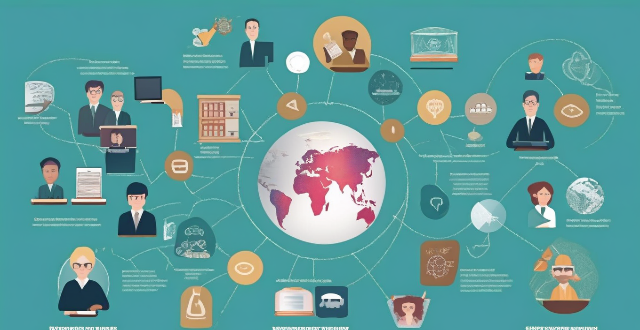
How do these education policy updates align with global education standards ?
Education policy updates align with global education standards in various ways, including curriculum reform, diverse assessment methods, teacher professional development, technology integration, and prioritizing student well-being and inclusivity. These efforts aim to equip students with the necessary skills and knowledge to thrive in a globalized world.
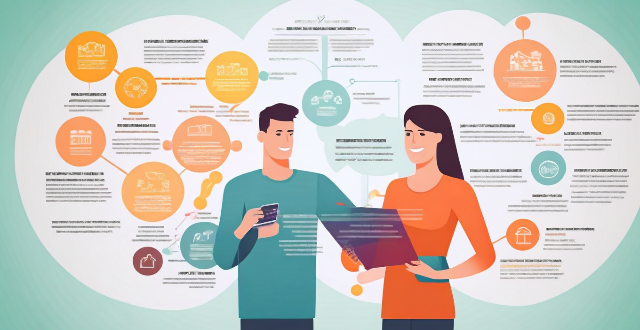
How can education and awareness-raising help promote both climate action and the SDGs ?
Education and awareness play a crucial role in promoting climate action and achieving the Sustainable Development Goals (SDGs). By providing individuals with knowledge and understanding of complex environmental issues, we can empower them to make informed decisions and take action towards a more sustainable future. Educational programs can promote environmental literacy, encourage active engagement, and build capacity for innovation that supports both climate action and the achievement of the SDGs. Strategies for promoting climate action and the SDGs through education and awareness include integrating sustainability into curricula, promoting interdisciplinary collaboration, partnering with community organizations, and utilizing technology and social media.
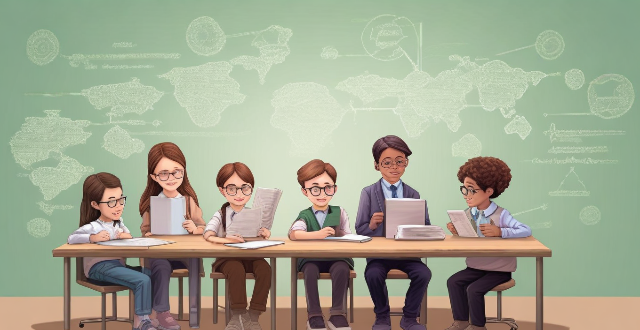
How will these education policy updates impact the future of education in our society ?
Education policy updates may increase access to education, emphasize STEM education, and improve student outcomes.

What role do education systems play in promoting scientific literacy among women ?
Education systems play a crucial role in promoting scientific literacy among women by providing equal access to education, encouraging female teachers, offering extracurricular activities, addressing gender bias, and providing mentorship programs.

What strategies have been successful in promoting female education in developing countries ?
Promoting female education in developing countries is crucial to socio-economic development. Successful strategies include community engagement, government policies, education system reforms, partnerships, and technology integration. These efforts aim to ensure every girl has the opportunity for quality education.
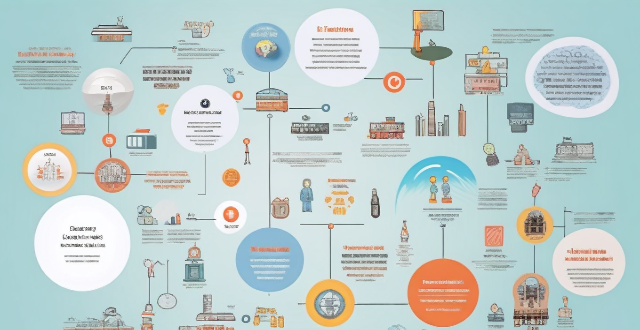
What are the latest updates in education policy ?
The latest updates in education policy focus on improving the quality of education, increasing accessibility, and preparing students for future challenges. Key areas of reform include remote learning and online education, inclusive education, curriculum reform, teacher professional development, and funding and resource allocation. These changes aim to create a more effective and equitable educational system for all students.
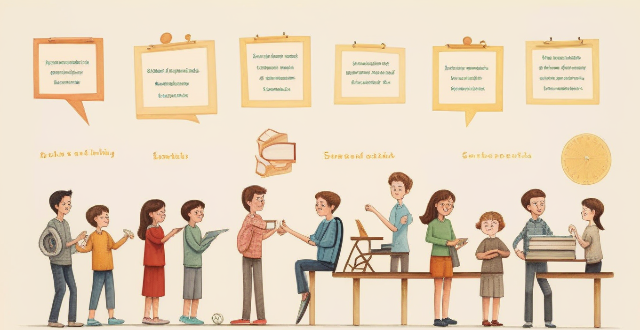
What training should regular education teachers have to effectively teach students with special education needs ?
Regular education teachers require specialized training to teach students with special education needs (SEN). This should include understanding of SEN, differentiated instruction, collaboration and communication, data collection and analysis, and cultural competency. By equipping teachers with these skills, we can create a more inclusive learning environment for all students.

What are some successful initiatives that have addressed both climate change and poverty ?
Successful initiatives addressing climate change and poverty include renewable energy projects, energy efficiency programs, sustainable agriculture practices like agroforestry and organic farming, forest conservation and reforestation programs, green microfinance and green bonds, as well as waste management and recycling programs. These efforts not only reduce carbon emissions but also create job opportunities and improve the livelihoods of impoverished communities, contributing to a more equitable world while protecting the planet for future generations.

How can education help combat climate change ?
Education is a powerful tool in the fight against climate change by fostering awareness, promoting sustainable practices, stimulating innovation, and shaping policy. It empowers individuals to make informed decisions and advocate for environmental protection through comprehensive science education, applied learning experiences, interdisciplinary research, and civic engagement. By integrating sustainability into curricula and encouraging global perspectives, education prepares future generations to tackle the complex challenges of climate change effectively.